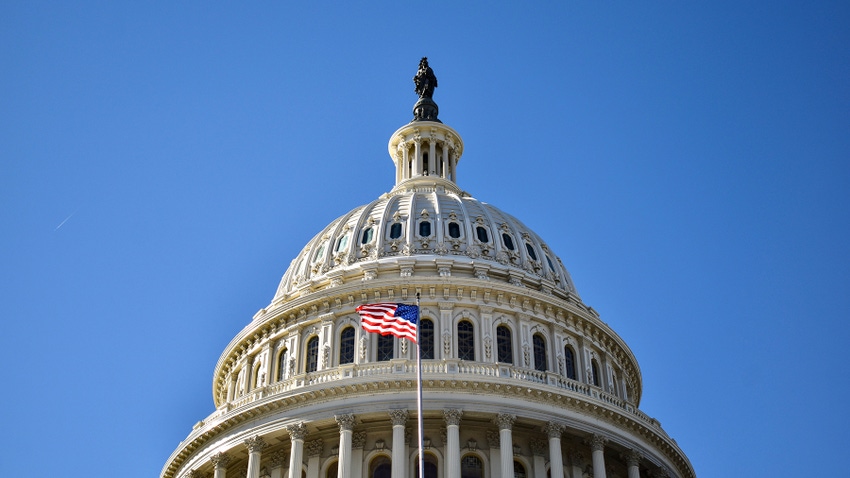
The holiday season is here. It’s a time of celebration and reflection, a chance to take a break and recharge for the new year. It’s also the season of lists, with countless media outlets offering their takes on how things ranked over the past year.
Not to be outdone, we present our list of the top five policy stories of 2023. While one could make a compelling case for other topics to be ranked higher, there is no argument that these five stories will have a lasting impact well into 2024 and beyond.
Stabenow not seeking re-election
Senate Agriculture Committee Chair Debbie Stabenow announced in early January that she would not be seeking re-election. The four-term Michigan Senator has been the top-ranking Democrat on the Committee since 2011. She has held public office since 1974 when she was elected to the Ingham County, Michigan Board of Commissioners. The race to replace her next fall will go along way to determining which party controls the Senate in 2025.
No resolution to U.S.- Mexico GMO corn dispute
Another year has come and gone without an agreement between the United State and Mexico on genetically modified corn. Despite making some minor changes to his decree, Mexican President Andres Manual Lopez Obrador plans to ban imports of GMO corn for human consumption.
Mexican officials site health concerns and protecting native corn varieties and reasons why the ban is needed. American officials counter that multiple studies have shown GMO corn to be safe for human consumption. Therefore, Mexico is not adhering to its obligations under the U.S.-Canada-Mexico trade agreement.
A dispute resolution committee established at the request of the U.S. is now working to resolve the issue. However, Agriculture Secretary Tom Vilsack recently said that a change in Mexican leadership may offer the best hope for a resolution.
The WOTUS that was
The year began with news of the Biden administration issuing a new Waters of the United States rule. Per the terms of the Clean Water ACT, the EPA has authority to regulate the “navigable waters of the United States.” The WOTUS rule determines which bodies of water fall under this definition. The issue has been debated for more than two decades, with multiple presidents offering new rules, and multiple courts weighing in.
Ag producers were among those most vehemently against the new Biden rule. While supporters contended the rule was needed, many landowners considered it to be an example of government overreach.
In May, the Supreme Court agreed, saying that small bodies of water that had a “significant nexus” to navigable waterways was too broad of a definition. Instead, the court’s majority opinion decreed there must be a “direct connection” for the law to apply.
In response to the high court ruling, the Biden administration issued another WOTUS rule that eliminated the significant nexus standard. However, many ag groups had hoped the administration would open the rule up for discussion to address other issues they have with the rule. As 2023 comes to a close, multiple states still have court cases pending that could once again change the law of the land.
California Proposition 12 upheld, but battle continues
Everyone has an opinion on California Proposition 12. The controversial bill establishing minimum living space requirements for certain animals was upheld by the Supreme Court in May. Critics of the rule say it gives large states like California the power to regulate agriculture in other states. Supporters say the rule are necessary to protect animals from cruelty.
In response to the rule, lawmakers in both chambers of Congress introduced legislation to nullify rules like California’s law. So far, those bills have received significant bipartisan support. However, a sizable group of lawmakers also oppose attempts to overturn the will of California voters. Ironically, both sides say they are standing up for the rights of states to make their own decisions.
Prop 12 opponents say the impact of the additional regulations imposes an undue burden on pork producers, while others see it as an opportunity to create a premium product. With no resolution in site, the issue will likely continue to be debated as farm bill negotiations heat up.
No new farm bill
There’s no doubt that crafting new farm bill legislation was one of the 2023’s most debated issues. For much of the year, the agriculture world worked and waited for Congress to pass a new bill. By late summer, it became apparent there would be no new farm bill any time soon. Instead, lawmakers opted to extend the 2018 Farm Bill through September 2024. While the move was widely applauded, ag advocates also lamented the lack of a new bill that better reflects today’s market condition.
The deal was part of a November bipartisan agreement to extend Congress’s deadline to pass a new budget. There has been little progress in the budgeting process since. Now lawmakers face deadlines in January and February to keep government agencies running. Where that leaves the farm bill remains anyone’s guess.
About the Author(s)
You May Also Like






